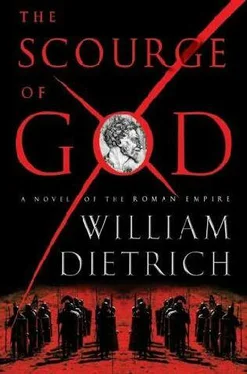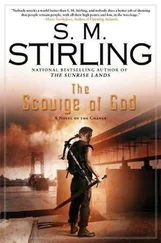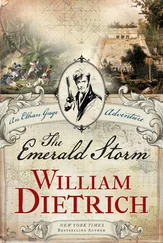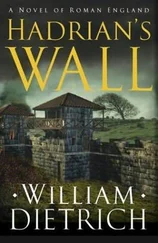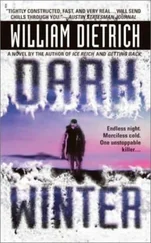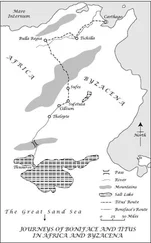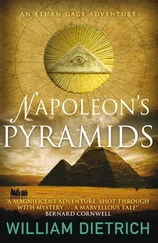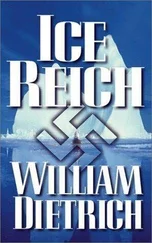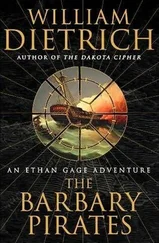William Dietrich - The Scourge of God
Здесь есть возможность читать онлайн «William Dietrich - The Scourge of God» весь текст электронной книги совершенно бесплатно (целиком полную версию без сокращений). В некоторых случаях можно слушать аудио, скачать через торрент в формате fb2 и присутствует краткое содержание. Жанр: Фэнтези, на английском языке. Описание произведения, (предисловие) а так же отзывы посетителей доступны на портале библиотеки ЛибКат.
- Название:The Scourge of God
- Автор:
- Жанр:
- Год:неизвестен
- ISBN:нет данных
- Рейтинг книги:5 / 5. Голосов: 1
-
Избранное:Добавить в избранное
- Отзывы:
-
Ваша оценка:
- 100
- 1
- 2
- 3
- 4
- 5
The Scourge of God: краткое содержание, описание и аннотация
Предлагаем к чтению аннотацию, описание, краткое содержание или предисловие (зависит от того, что написал сам автор книги «The Scourge of God»). Если вы не нашли необходимую информацию о книге — напишите в комментариях, мы постараемся отыскать её.
The Scourge of God — читать онлайн бесплатно полную книгу (весь текст) целиком
Ниже представлен текст книги, разбитый по страницам. Система сохранения места последней прочитанной страницы, позволяет с удобством читать онлайн бесплатно книгу «The Scourge of God», без необходимости каждый раз заново искать на чём Вы остановились. Поставьте закладку, и сможете в любой момент перейти на страницу, на которой закончили чтение.
Интервал:
Закладка:
This opinion of the importance of Attila, argued by Gib-bon in his classic Decline and Fall of the Roman Empire and in the nineteenth century by historians such as Edward Creasy in his book Fifteen Decisive Battles of the World , is not as popular among modern historians today. Scholars make their reputation by debunking the theories of their predecessors, and some argue that, unlike Genghis Khan, Attila essentially failed as both conqueror and empire maker. To them, Chalons was but an episode in a long saga of Roman decay and the Huns a people who vanished like smoke. All that Flavius Aetius, “the Last of the Romans,” achieved at the battle, they contend, was brief continuation of a dying status quo. That Aetius let Attila survive and retreat would seem to make the campaign of 451 even less significant.
Added to this dismissal is disbelief that the Battle of Chalons-sur-Marne (which actually is believed to have occurred closer to present-day Troyes, France) was anything near the titanic struggle portrayed by ancient and medieval historians. These chroniclers suggest numbers engaged of five hundred thousand to a million men, and a death count of one hundred sixty thousand to three hundred thousand soldiers. Such estimates indeed seem fantastic, prone to the hyperbolic exaggeration of the early Dark Ages. Modern scholars routinely cut estimates of the numbers engaged and casualties inflicted in some ancient battles (but not others, for reasons never clear to this author) to a tenth or less, simply out of disbelief in such staggering figures.
I endorse a view somewhere between these ancients and moderns. Just as believers in Christianity argue that something happened after Jesus’ death to spark a new religion, however improbable the Resurrection is for some to swallow, so I suggest that something so set Attila’s campaign in Gaul apart from the ordinary barbarian invasion that the memory of it reverberates to the present day. “The fight grew fierce, confused, monstrous, unrelenting-a fight whose like no ancient time has ever recorded,” wrote the late ancient chronicler Jordanes. “In this most famous war of the bravest tribes, one hundred sixty thousand men are said to have been slain on both sides.” The writer Idiatus puts the number killed at three hundred thousand.
Given that the total casualties of the American Civil War’s bloodiest single day, at Antietam, were twenty-three thousand, such a number seems improbable in the extreme.
How could the armies of late antiquity supply, move, and command such numbers? And yet something extraordinary happened at Chalons. Ancient armies, particularly barbarian ones, required none of the complex supply we take for granted today: Great numbers might indeed have been assembled for a season’s campaigning. What American would believe in the days before Pearl Harbor that by 1945, the United States-with half its present population-could afford to have enlisted sixteen million men and women under arms? Or that the Soviet Union could absorb twenty million dead in that war and still be counted one of the winners? Or that at Woodstock, New York, half a million young people would assemble for an outdoor rock concert in the rain?
People do extraordinary things. Attila’s greatest battle was probably one of them, though its precise details will never be known. Even its location is vague. Personal inspection of the beautifully rolling countryside between Chalons and Troyes showed a hundred places that fit the vague details of hill and stream described by Jordanes. French military officers have made a hobby of looking for the battlefield, without success. This imprecision is not unusual. The exact site of many decisive ancient battles such as Cannae, Plataea, Issus, and Zama are not known. The ancients didn’t make battlefields into parks.
We are hampered because our primary sources about the Huns are so meager. There are three that seem primary. One is the Roman historian Ammianus Marcellinus, who wrote of the early Huns. Another is Olympiodorus of Thebes, whose account of a visit to the Huns was lost but who was used as a source in the surviving accounts by other ancient historians. A third is Priscus of Panium, who accompanied the ill-fated embassy, with its assassination plot, to Attila.
He is the inspiration (though the real historian was older and better connected) for Jonas. It is probably a lost fragment of Priscus that provides the later Jordanes with a vivid word picture of Attila: “Haughty in his carriage, casting his eyes about him on all sides so that the proud man’s power was to be seen in the very movement of his body . . . He was short of stature with a broad chest, massive head, and small eyes.
His beard was thin and sprinkled with gray, his nose flat, and his complexion swarthy, showing thus the signs of his origins.”
What was the Hun homeland? We don’t know. Some scholars put their starting point as far east as Mongolia, others on the steppes of Russia. Their origin was a mystery to the Romans, but legend has them appearing on the world stage after following a white deer across the marshes at the Straits of Kerch into the Crimea.
So, what in this novel is “true”? All the principal characters, with the exception of Jonas, Ilana, and Skilla, are real-life historical figures. I’ve invented details of their lives and words to fit my story, but their general role is fairly accurate.
My depiction of the embassy to Attila and the campaign of 451 roughly follows the occasionally confusing account we have from Priscus and other historians. The “facts” include a possible conspiracy by the Huns and King Sangibanus to betray Aurelia (Orleans), and Attila’s desperate construction of a funeral pyre after the awful battle. Yet even the most basic points, such as whether Orleans was really besieged, or whether Attila really built the pyre, are recorded in some accounts but not in others. Such are the problems of the history of late antiquity.
To research this book I’ve not only read what accounts we have but also retraced Attila’s likely invasion route in Europe. I visited museums, looked at surviving artifacts, and did my best to bring back to life a period of extremely complex politics and culture. The task is not easy because no nation wants to claim the Huns. Even the Hungarian National Museum, while it does have a single room briefly discussing this mysterious people, declines to point out that its nation’s name stems from them. While Attila is still a popular name in Hungary and Budapest even premiered a rock opera about the famed king in 1993, the country prefers to date its origin from the Magyars.
Yet what a pity that records are not more complete! Recent studies have tended to cast “barbarians” in a more favorable light. Perhaps the Huns deserve better. And my suspicion is that the reality of that tumultuous time was far stranger than what I have imagined. It must have produced true stories, now lost, of conflict and heroism as fascinating as those in the Wild West. How people must have struggled to keep their footing on the cracking ice of the Roman Empire!
I have invented a great deal in my plot, of course. There is no recorded theft of the great sword; all we have is mention of its existence. (Hungarian royalty actually claimed to have rediscovered the sword six centuries later.) As far as we know, Zerco was merely an unfortunate jester, not an imperial spy, though he was married as described and traded back and forth between Aetius and Attila. While Eudoxius did lead an unsuccessful revolt against Rome and fled to Attila, there is no record of his being an envoy to the Vandals-
even though the threat that Gaiseric represented to Rome did enter into Attila’s strategic thinking. Bishop Anianus did rally troops on the walls of Aurelia, and a hermit did call Attila “the Scourge of God,” but my suggestion that the two are the same person is fictional. There is no report of a fire at Attila’s palace set by a woman named Ilana, and Jonas’s pivotal role in great events is, alas, made up. In short, I freely embroidered already fascinating history to tell a good yarn.
Читать дальшеИнтервал:
Закладка:
Похожие книги на «The Scourge of God»
Представляем Вашему вниманию похожие книги на «The Scourge of God» списком для выбора. Мы отобрали схожую по названию и смыслу литературу в надежде предоставить читателям больше вариантов отыскать новые, интересные, ещё непрочитанные произведения.
Обсуждение, отзывы о книге «The Scourge of God» и просто собственные мнения читателей. Оставьте ваши комментарии, напишите, что Вы думаете о произведении, его смысле или главных героях. Укажите что конкретно понравилось, а что нет, и почему Вы так считаете.
